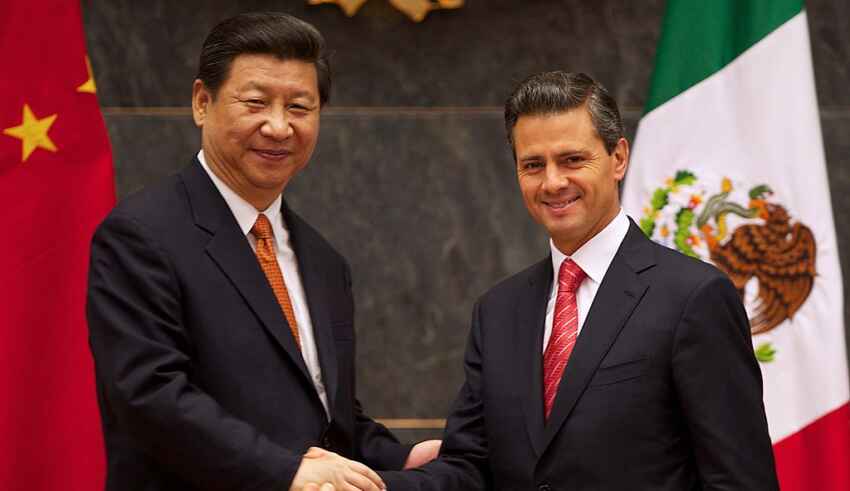
Recent international developments are causing the geopolitical landscape to change drastically and at the centre of this transition lies the economic rivalry between the US and China. However, amid this geopolitical rivalry, Mexico is emerging as a strategic player, particularly with regard to global trade and supply chain realignment. This can most likely be linked to the popularisation of Nearshoring strategies, which are aimed at relocating manufacturing from Asia to geographically closer regions and have placed Mexico as a key alternative to China. If Mexico wants to capitalise on this newly gained advantage it must first address structural challenges and bolster its trading policy.
A major advantage for Mexico is its geographical position as a neighbour of the United States, which can make it an attractive manufacturing hub for US industries. Additionally, the United States-Mexico-Canada Agreement, which has strengthened economic ties amongst the three countries, has made Mexico into an exciting opportunity for Foreign Direct Investment. American and European companies are increasingly looking to Mexico for manufacturing solutions, seeking to mitigate risks associated with China’s supply chain disruptions and trade restrictions. Nevertheless, despite a significant increase in FDI, Mexico still faces major problems related to its infrastructure, regulatory inconsistencies, and security concerns, which may pose obstacles for further international investment. Security and governance issues seem to be the biggest deterring factors for potential investors. Organized crime, corruption, and a weak rule of law, particularly in Mexican manufacturing areas, contribute to a lack of security and an increase in costs and operational risks for multinational corporations. In order for Mexico to become a leading manufacturing hub, the Government must, thus, first carry out policies to tackle these issues. Mexican authorities should implement more robust security policies, ensure judicial transparency, and foster an investment-friendly environment. This could be achieved by establishing special economic zones with enhanced security measures and regulatory stability which, in turn, would provide businesses with the confidence needed to invest in the Mexican manufacturing sector over the Chinese or Southeast Asian industries.
Furthermore, Mexico must revise its geopolitical strategy and its trade policies, in order to maximise the potential of its manufacturing industry. Despite benefitting from easy access to the US’ market due to its geographic location and economic ties, its trade relations with China remain complex. Given that China is one of the biggest suppliers of raw materials and components for Mexican industries, particularly regarding the manufacturing of automotive and electronics, Mexico should avoid adopting a confrontational stance towards China. Instead it should strive to balance trade relationships with both the US and China while attempting to position itself as a mediator between the two superpowers, promoting balanced economic diplomacy that would safeguard its interests while maintaining strong trade relationships with both.
Another issue standing in the way of Mexico’s manufacturing potential is infrastructure development. Despite the recent proliferation of its industrial capabilities, logistical challenges such as outdated ports, inefficient railway systems, and limited energy infrastructure could undermine its potential. In order to combat these inefficiencies, the government should prioritise investing in logistics and sustainable energy sources and could partner and increase cooperation with international financial institutions which could help bridge the infrastructure gap and boost Mexico’s competitiveness in global markets. Moreover, as tensions between the US and China escalate, Mexico should leverage its geographical and cultural ties to other American nations in order to play a stabilizing role in North American and Latin American diplomacy. By strengthening regional alliances through organizations such as the Pacific Alliance and fostering deeper cooperation with South American economies Mexico can significantly enhance its negotiating power on the global stage.
In conclusion, if Mexico wants to fully capitalise on the current geopolitical situation, it must implement pragmatic and forward-thinking policies. A comprehensive security strategy, infrastructure development, and a balanced trade approach will allow Mexico to transition from being a manufacturing alternative to a leading global economic player. By effectively addressing these challenges, it will not only benefit from nearshoring but it will also reshape its position in the international order, reinforcing its role as a key actor in an increasingly multipolar world.
By The European Institute for International Relations















